Could you first introduce yourself to the reader?
Hi, I’m Justin Matson, I’m an American comic currently living in Los Angeles, originally from San Diego, and I’m here at Adelaide doing my show Justin Matson: Fatter Than You Think, which is an hour long stand-up about my journey as a gay man trying to deal with body image. That’s the one line pitch of the story, but I have a bunch of random jokes too!
Have you been doing stand-up long?
Yeah - well, long is relative, but I think it’s about eight years since I started in New York, and I was there for about three years and then I moved to LA. I do as much as I can, I host a couple of shows in LA and I’m on a sketch team so I do improv and sketch as well, but stand-up is my number one passion.
What’s the most challenging part of trying to be a stand-up comedian?
There’s so many challenges! I mean, at the end of the day I’m not working in a coal mine or doing the world’s most dangerous job, hunting for crabs in the middle of the Arctic or something, so it’s way easier than most other jobs, but at the same time they say public speaking is the biggest fear for most people, and every night you’re basically being judged by a room full of strangers who are expecting you to blow their minds and entertain them. To me, getting people to laugh, the creative part, is the fun part, and the more gruelling challenge is the admin stuff: trying to find your voice, trying to market, build a brand, build an audience, grow your fan base and so on. And that’s the stuff you have to go round the world going to festivals for, and do PR and all that stuff.
Is this your first time at a Fringe?
I went to Edinburgh last August; I didn’t do a show there, I helped a friend with her show and I did a few gigs, and it was kind of a recon mission to see what the Fringe is. I learned so much and I was so inspired. It’s such a beautiful festival and city. So I decided I had to do a Fringe, and I was talking to my friends and even when they’d had a hard time they were still glad they did it, because they grew as a comic and they learned a lot of valuable life lessons. While I was there I ran into a booth on the Adelaide Fringe and they tricked me into thinking it was right on the beach and I thought that sounds amazing, so I signed up! And then I looked at a map and it was technically like an hour from the beach…but it still sounded amazing, so I thought, why not spend a month there?
Did you write this show specifically for the Fringe?
Yeah, this is the first time I’m doing this show, it’s the international debut! I haven’t done anything in LA yet, when I get back I’ll probably do an LA show, and then I have some other Fringes in the works; they’re not confirmed yet but I was thinking of going to the San Diego Fringe, then San Francisco, New York, Hollywood, and then maybe Edinburgh. But we’ll see how I feel in two weeks! I don't want to sign up for too much too soon, but at the same time there’s a shelf life on this show, because I don't want to be doing the same jokes ten years from now, but I’ve already made the posters and stuff, so I’ll save some money if I reuse the images…
Why did you decide to do a show on body image?
I went through my material and I had a few options. I had a previous show that I never released but it was an earlier version of this and it was called ‘I Have Hopes and Dreams’. A lot of it was about my naive optimism of job hunting, and I feel like when you get out of college you’re so excited and eager - and then you realise that none of that was real! My whole life, teachers in high school would say I was the real deal and they were all lying, and then just because you have a college degree doesn’t mean you’ll get a job. So it was about that disillusionment of dealing with reality. And then I looked at my set list and I had about twenty minutes of jokes about my body image, and I had jokes about me being a temp, and that’s quite a fun character, ‘Justin the Temp’. So I had multiple versions, but ultimately I thought the body image stuff was the most personal and the most vulnerable, for me, and I wanted to have an emotional arc to the show. I think talking about getting work is maybe relatable and fun but it’s not as deep and emotional, and I wanted to go to the more vulnerable place.
Why did you choose the title, ‘Fatter Than You Think’?
Well, when I was thinking of titles, I was thinking, what’s a catchy title that kind of explains what the show is about but doesn’t give too much away? And I liked ‘Fatter Than You Think’ because I do feel like that’s a good representative of me - even when I was skinny or when I was at my largest it didn't matter, I always saw myself as fatter, and I’d say to people ‘You don't know, I’m actually fatter than you think’.
How do you think your struggles with body image and eating disorders affected you growing up?
Wow, this is like therapy!
Yeah, this is actually a counselling session, didn't you know?
Did my mother send you?
Dammit, you weren’t supposed to find out!
Well, I’ve dealt with body image my whole life. Everyone in my family is larger, and if you look at the medical history of my family it’s very scary, genetically. We’ve got every disease on the planet: diabetes, Alzheimer's, and a lot of my family have had surgeries, both cosmetic and health-related. I was always a larger kid, and that affected me in school - I had no friends, and was very unpopular - and that’s probably why I used comedy as a self-defence mechanism. I thought if I can't be liked for other reasons I can be funny and get friends that way. It didn't work! I was super funny and I was really nice, so I don’t know why I was so unpopular.
Kids can be brutal.
Well, I think I was an old soul. I think I was maybe more mature than people my age, and I was always very by-the-book and I behaved and got good grades and so on. My friends all wanted to get drunk and party and I was always saying we shouldn't be drinking, so I was a little bit of a goody two shoes. And I was larger and bullying was a big thing, and in the show I tell a story about getting kicked off a rollercoaster which was in tenth grade, and that’s when I decided I didn't want to be big anymore. So I lost a bunch of weight and I was skinny - well, skinnier, I still felt large - and I thought maybe that would change people’s perceptions of me, but it didn't really. And then I moved to Los Angeles and went to college and in college everyone is beautiful, and I went to USC Santa Barbara, on the beach, where everyone is basically a supermodel, and I felt very insecure in my body. That’s where I developed an obsession with food. I remember I would count snacks and put them in ziplock bags according to the calorie count, and every hour I’d try to have one snack, and it was a very unhealthy obsession.
I saw a nutritionist there and I got a fat density test, where you sit in a tub of water and they tell you what percentage of your body is fat, and they said I was 16% body fat and I didn't know what that meant. That’s pretty normal, especially for Americans, but I was in the athletics department where everyone was under 10% body fat, so I used that number as validation that I was fat. And the nutritionist I saw said I definitely had an unhealthy obsession with my weight, but she didn't really give me any help; it wasn't a therapy session that ended in anything. She just said ‘You should be healthier’.
Then when I moved to New York I was dealing with my sexuality, and that was a whole other thing. The gay community is great in some ways and bad in some ways, and when you’re under pressure and you’re trying to date and you’re comparing yourself to everyone else it’s literally just like high school all over again. I led a meet-up group, called the ‘New York Non-Seen Gay 20-something Meet Up Group’, and the ‘non-seen’ part meant we don't go to clubs or do all those trendy things, we’re just like normal people, we go to movies and dinners and stuff like that. There were about 100 people in the group and I made a lot of gay friends that way, but there was always this weird subtext when you were in a group of gay guys because most people were there looking for a date, so I found out that everyone there was having sex but me! I don't know if that fuelled my pursuit of the perfect body, but basically I have a whole history of unhealthy obsessions with my body.
Did you get any support while you were going through all of this?
I was never diagnosed as anorexic or anything. There is a stigma about it - I’m not against mental health, and I’ve seen a therapist since then and I’ve definitely pursued it - but at the time I just didn't know what resources were available. In college I knew I was anorexic - I fit that description - and I don't know, maybe medically it would’ve been something else, but mentally, in terms of my food obsession, I definitely was. And then I was bulimic for a little bit and I knew that was unhealthy, and I saw a nutritionist and told some friends, and they were kind of helpful and tried to assure me that it was all in my head, but I think I just brushed it off. It’s hard to accept compliments when you don't believe them. Especially in terms of mental health; you’re constantly having these thoughts that are calling you one thing, and even if you can logically reason, ‘Okay, I’m at this weight, which according to charts is healthy’, you still don't feel that. Any time someone tells you you look great you just shrug it off.
I know, I do exactly the same.
That’s the thing, I think everyone does it. It can be about something else too. Weight’s an easy one because it’s so common, but people are even just insecure about their looks or bone structure - I have a crooked nose and that’s something I’m always a little bit insecure about. I did go to Overeaters Anonymous meetings, and those were really helpful. They were also a little scary; it’s mostly women, and as a man I feel a little uncomfortable at meetings. I think I relate much better to women, but there is a weird subtext. Men don't have as many pressures as women, I don't think, but gay men have at least similar issues.
I was going to ask, because eating disorders are much more common among women, do you think your experience was different as a man? Did people not take you as seriously?
Yeah, I mean, I feel bad - I feel like I’ve lived a privileged life, so I feel bad about complaining. I had a friend who got a dance scholarship to college and she gained maybe ten pounds, and they kicked her out of college and cancelled her scholarship because she was too fat for the dance team. I heard that story and thought, who am I to complain about my experience? So I go to meetings and I listen, and sometimes I stand up and share my story, but I get more out of meetings when I listen to others and hear their experiences. But it definitely did feel like a different experience, as a man.
So were those meetings the best support for you?
Well I went to some gay support meetings, and I went to a meeting at the LGBT centre. They just had a mixed-bag support meeting, which I don't recommend! They had a room of 15 people who all had different problems, and they went around the circle and people were addicted to drugs and getting evicted and had been victims of sexual assault and abuse and then it comes to me and I’m just a little overweight, you know. I did a similar thing in high school, and I hate group ones because it was another mixed-bag and there's limited resources, and it’s high school so everyone makes fun of you for going. I would like to find mental health resources that are more effective. I’ve seen a therapist this year and she's been really helpful, but I think a lot of my journey has been on my own. I’m an independent person, I’ve never fit in with the mainstream, and I think I get more out of hearing other people’s stories. I get more out of a Fringe show than I do out of seeing a therapist.
You said you were on your own - were your parents aware of what was going on?
Not really, no. When I started doing comedy and talking about all of these things onstage, my mum told me she didn't know I was dealing with all of that. I don't want to blame my parents for anything, but I definitely developed bad eating habits - we would eat fast food every single night. My mum was a single, working mother - my parents divorced when I was a kid - and she was an anaesthetist, so she would work a long day and then she’d come home and she didn't want to cook dinner, so the easiest thing was just to grab McDonalds. When you’re having McDonalds twice or three times a day you develop such a bad idea of what healthy is.
My mum struggled with weight, so she was dealing with her own problems and she eventually had surgery, and so did my brother, so we were all in the same boat. But we don't talk about it. I feel like when someone else has a problem you have, talking about it puts you on the spot. If my mum tried to talk to me about my weight she would have to address her own problems and she was trying to escape her own reality, and that's human. I also have Italian heritage, and Italians just push food on you non stop! It’s so hard when I go home because I’ll say I’m not hungry and it’s like ‘but I just spent eight hours cooking meatballs, are you not going to have six meatball sandwiches?’ It’s hard to say no, you know? Usually I eat unhealthily when I’m home and then try and get out of there as soon as possible!
Have the arts helped you to deal with your body image and sexuality?
Yeah, I mean, I feel like I’m very comfortable with my sexuality now. I don't know exactly when that happened. I didn't come out officially until I was 23, and even then I didn’t tell a lot of people. My father died before I could come out to him so I never got that experience. I told my mum, but then I just wondered, am I supposed to email everyone I’ve ever met, or make a big formal speech? So I tell the people who are in my life now, and leave it there, but now and then I’ll run into a cousin who doesn’t know, which is weird. But when I started comedy a lot of my jokes were about being gay, so I’d have to come out to the audience. So I would literally have to stand up in front of a room of 30 to 100 strangers and say ‘I’m gay’. Saying that every night for years and years, you just have to be okay with it. I think that did help me, to have more pride in it and less shame.
And then there’s the whole bisexual vs gay thing - labels are silly and it doesn’t matter to me what people call me, but that was another journey. I called myself gay; I was in it to win it, full-blown gay! And then I met a bunch of gay people and we were talking and what they were talking about didn't describe me, and a lot of my gay friends would never consider dating a woman and I’ve had three girlfriends, so I almost back-pedalled a little bit. I mean, it isn’t really back-pedalling, but that's how it feels! I had to explain to my family that I was only half gay, so there's this weird other layer. But I think performing has really helped because I’m constantly coming out, so I just have to be okay with it.
Hw do you think the social and political changes we are seeing in the world at the moment have affected the way we see mental health?
It’s really hard. America is in trouble right now. And the world because of us; I’m sorry! I think there's a big divide in America, and there's a big backlash against helpful things. There’s a big movement to not be helpful to people. Hopefully we can stop that and turn things around, and I know that when the government fails people try to find other means to find support, so there’s more charities, there's more activism. Immigration is going crazy in America right now; they raid people’s houses at night and deport people - they’re called Night Raids - and there have been cases lately of people hiding immigrants in their basements. That’s happening right now in America. And it’s hard to recognise, but when you read history and you read about the Holocaust, there’s very troubling signs. It’s hard to know how bad it is when you’re in it, and you don't want to be alarmist, but there are people who are being forced to move to countries they’ve never even been to. There’s a lot going on. But there’s so many charities and so much activism and when the government fails you you’ve got to do it some other way.
What advice would you give to young people who are struggling with body image issues or their sexuality?
Well, the ‘It gets better’ campaign I think is amazing, I think I can relate to that more than anything. I was bullied my whole childhood and it was pretty rough, but once I got to college it immediately stopped. It’s like college weeds out the people who aren’t as serious or mature, so once I got to college a lot of my social problems went away. So that’s one thing: just hang in there, it does get better. That’s a big one. So is being able to talk; having a friend who is able to listen, or people who are going through the same thing. I tend to gravitate towards larger people…I think I can just relate to them more! Maybe that’s unfair, maybe I’m putting stereotypes on their experiences, but I feel like we probably have more in common.
In terms of seeking help for mental health, I’d say you may have to try a few before you find the right fit. I’m not sure what it’s like in Australia but in America our healthcare is terrible, and they’re trying to shut down mental health facilities, which is a nightmare, but there is still stuff out there. If you search free mental health clinics they do exist, and LGBT centres are really helpful - I’ve definitely had a good experience with those. There are people who are willing to help. And don’t be ashamed of it. I don't think I was ever ashamed of getting help. Mental health is something everyone deals with to different degrees, but everyone on some level has struggled with something, and it’s just like any other illness. Therapy is really helpful, even if you aren’t currently having any symptoms, I think it’s preventative.
I agree - I think everyone should get counselling
Yeah! As an entertainer I’m kind of selfish because I get to talk about myself for an hour, which is kind of similar - it’s great, having a captive audience! But seriously, there’s no shame in seeing a therapist. Don’t be ashamed to find help.
A huge thank you to Justin for sharing so much and for all his advice
This interview has been edited for length and clarity

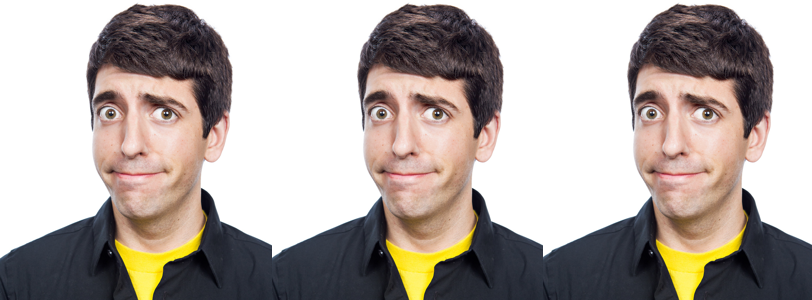
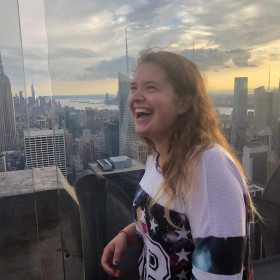
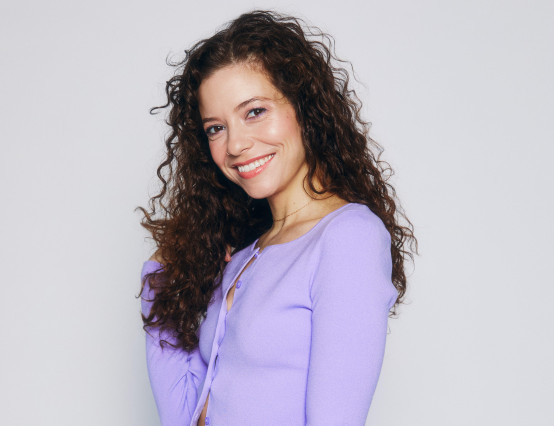
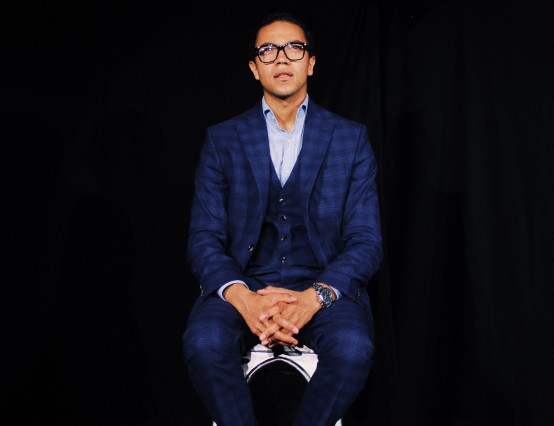
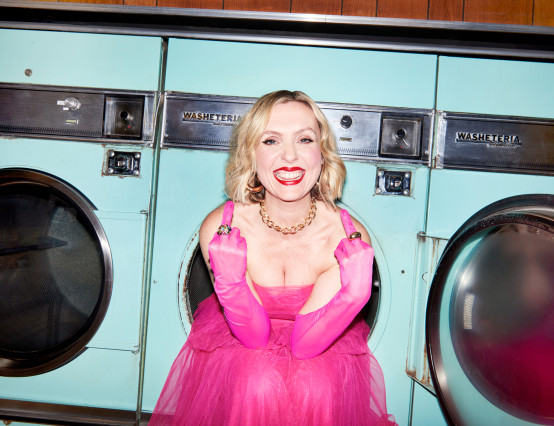



0 Comments